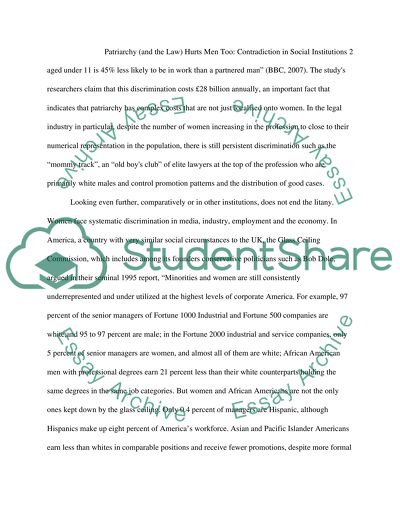Cite this document
(“Patriarchy hurts men too: contradiction in social institutions Essay”, n.d.)
Retrieved from https://studentshare.org/sociology/1407788-patriarchy-hurts-men-too-contradiction-in-social-institutions
Retrieved from https://studentshare.org/sociology/1407788-patriarchy-hurts-men-too-contradiction-in-social-institutions
(Patriarchy Hurts Men Too: Contradiction in Social Institutions Essay)
https://studentshare.org/sociology/1407788-patriarchy-hurts-men-too-contradiction-in-social-institutions.
https://studentshare.org/sociology/1407788-patriarchy-hurts-men-too-contradiction-in-social-institutions.
“Patriarchy Hurts Men Too: Contradiction in Social Institutions Essay”, n.d. https://studentshare.org/sociology/1407788-patriarchy-hurts-men-too-contradiction-in-social-institutions.


